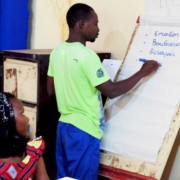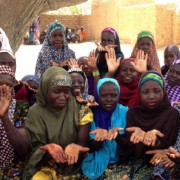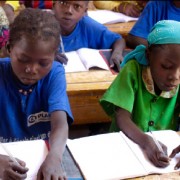Speeches Shim

Following Niger’s return to democratic rule in 2010, the Government of Niger committed to fighting corruption, increasing transparency, and ensuring that proper management of the country’s natural resources benefits all Nigeriens. Niger’s National Assembly plays a key role in advancing reforms needed to strengthen governance and consolidate recent democratic gains vital to furthering the country’s development. The potential revenue from extractive industries in Niger is of great importance to the economic growth of the country, and as a result, the efficient and transparent management of these industries plays a key role in Niger’s future.

Niger consistently ranks at or near the bottom of the United Nations Development Program’s Human Development Index. Chronic food insecurity and infectious disease have resulted in some of the highest rates of malnutrition and mortality in the world. Over forty percent of children under five are chronically malnourished and the rates of acute malnutrition are well beyond the threshold for public health emergencies. In addition, Niger has the highest fertility rate in the world. Left unchecked, Niger’s rapid population growth will further undermine health service delivery and weaken the resilience of the most vulnerable populations.

Niger’s population is 70% illiterate and only 44% of female primary school students reach 6th grade. To address this gap in education, the Government of Niger is implementing an ambitious national education program to increase educational access, quality and retention. USAID is contributing to these objectives together with support of the Millennium Challenge Corporation with programming that fosters a reading culture and early grade reading in local languages; an improved school environment, especially for girls; increased parental engagement; and strengthened community linkages with education administration. Additional support for impact evaluation of these activities aims to help the Ministry of Education make data-based policy and program decisions.


Comment
Make a general inquiry or suggest an improvement.